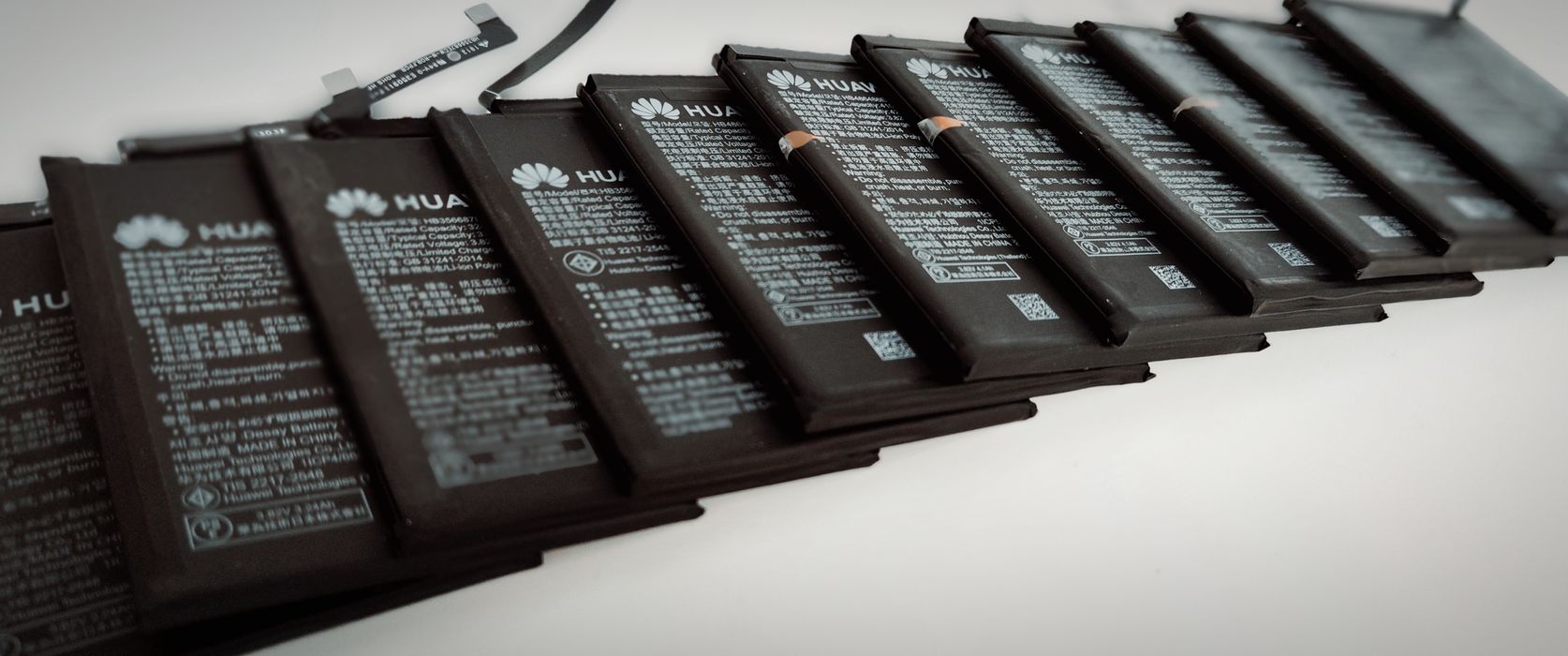It's hard to imagine our daily lives without smartphones. We use them for communication, navigation, social media, photography and much more. But even the most powerful smartphones are only as good as their batteries. Over time, battery performance degrades and the question arises: when should you replace or exchange your smartphone battery? In this article, we'll take a closer look at this question and give you some pointers to help you decide.
The life of a smartphone battery
Before we talk about when a battery replacement might be necessary, it's important to understand how smartphone batteries age. Most modern smartphones use lithium-ion batteries, which lose capacity over time. This loss of capacity is a natural process and occurs due to chemical reactions within the battery.
The average life of a smartphone battery is about 2 to 3 years or 300-500 charge cycles, depending on usage and care. One charge cycle is equivalent to fully charging the battery from 0% to 100%. After this period of time, most batteries start to noticeably lose capacity, resulting in a shortened battery life.
Signs of a degraded battery
There are some clear signs that it's time to think about a battery replacement:
shortened battery life. If your smartphone suddenly discharges much faster than before, this could be an indication that the battery is losing its capacity. You need to charge it more often to get through the day.
irregular charging Another common problem is irregular charging. For example, your smartphone may suddenly run out of power at 30%, even though it lasted for quite some time at a low battery level before. This is a sign that the battery is becoming unstable.
overheating If your smartphone overheats frequently, especially during charging, it may indicate a damaged battery. Overheating can not only shorten the battery life, but also be dangerous.
bloated battery A bloated battery is a serious problem and should be fixed immediately. If your smartphone case is bending or cracking, it may indicate a bloated battery. In such cases, there is an increased risk of fire.
slow charging times If your smartphone takes much longer to charge than before, this could be an indicator that the battery is losing its ability to absorb energy efficiently.
When is the right time to replace the battery?
The right time to replace your battery depends on several factors, including your usage patterns and personal preferences. Here are some guidelines to help you make your decision:
warranty period If your smartphone is still within the warranty period and you are having problems with the battery, you should contact the manufacturer or retailer. In many cases, the battery will be replaced free of charge.
frequent problems If you experience common problems as described above and your smartphone is out of warranty, a battery replacement may be a wise investment. A new battery can significantly improve the performance of your device.
smartphone upgrade Sometimes it makes sense to replace your battery if you are considering upgrading to a new smartphone anyway. A new battery can revive your old device and increase its resale value.
DIY or professional? Battery replacement on most modern smartphones is complicated and requires specialized tools and skills. If you are handy and confident to replace the battery by yourself, you can change it by yourself. Otherwise, we at nanoRepair offer professional battery replacement services. Take a look at the corresponding repairs of your device.
Conclusion
The battery is one of the most important components of your smartphone, and its performance degrades over time. If you notice signs of a degraded battery and your smartphone no longer works as usual, a battery replacement may be a viable option. Consider whether your device is still within its warranty period and see if professional help is needed. A new battery can get your smartphone back in tip-top shape and extend its useful life. Remember that taking proper care of your battery, such as avoiding overcharging and extreme temperatures, can help extend its life.


Comments